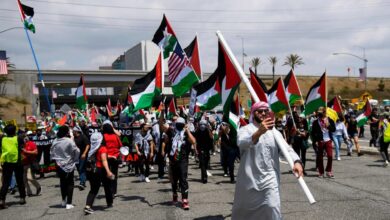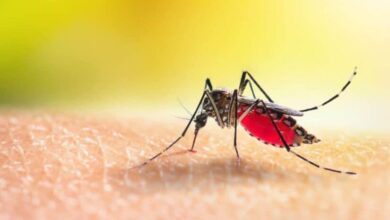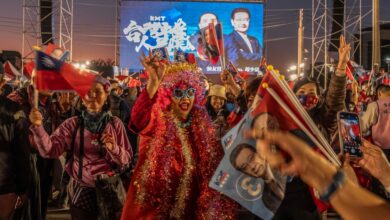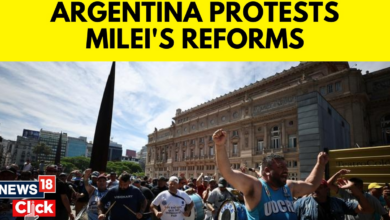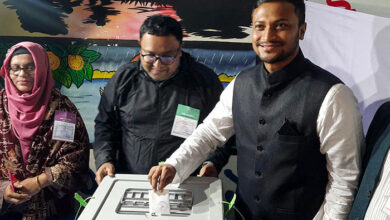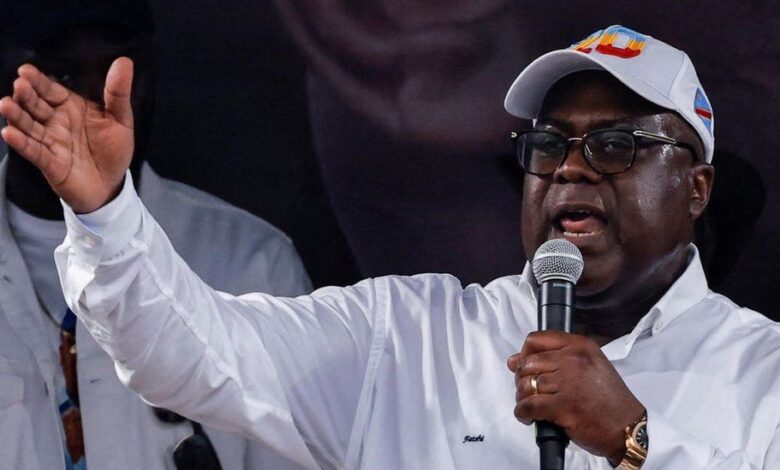
DR Congo President Sworn In After Disputed Election
DR Congo President to be sworn in for a second term after disputed election Felix Tshisekedi sets the stage for a dramatic political chapter in the Democratic Republic of Congo. The election, marred by allegations of fraud and irregularities, has sparked controversy and raised concerns about the legitimacy of Tshisekedi’s victory.
International observers, while acknowledging the logistical challenges of holding elections in such a vast and complex country, expressed reservations about the electoral process. The international community’s response to the election results has been mixed, with some countries expressing concerns and others offering cautious support.
The upcoming inauguration marks a pivotal moment in the DRC’s political landscape. Tshisekedi faces a daunting task in his second term, with the country grappling with deep-rooted issues of poverty, conflict, and instability. His ability to address these challenges and deliver on his promises will be crucial for the DRC’s future.
His policies will be closely watched, particularly in areas such as economic development, security, and social progress. The potential for political stability and reconciliation in the DRC under Tshisekedi’s leadership remains uncertain.
The Election and its Aftermath
Felix Tshisekedi’s victory in the 2018 Democratic Republic of Congo (DRC) presidential election was met with controversy and allegations of widespread electoral fraud. This led to a tumultuous period following the election, marked by political tensions and international scrutiny.
Allegations of Electoral Fraud
The opposition, led by Martin Fayulu, vehemently contested the results, claiming that the election was rigged in favor of Tshisekedi. They presented a significant body of evidence, including alleged irregularities in vote counting, manipulation of voter registers, and widespread intimidation of opposition supporters.
- One of the key allegations centered on the discrepancy between the official results and the tallies collected by independent observers. The opposition claimed that the official results, which gave Tshisekedi a narrow victory, were significantly inflated.
- Another major concern was the alleged manipulation of the voter register, with reports of ghost voters and multiple registrations. This raised questions about the integrity of the electoral process and the accuracy of the final results.
- The opposition also accused the ruling coalition of using intimidation and violence to suppress opposition supporters and ensure their own victory. This included allegations of voter suppression, the detention of opposition leaders, and the disruption of opposition rallies.
The Role of International Observers
The election was monitored by a large number of international observers, including the African Union (AU), the European Union (EU), and the Carter Center. While these observers acknowledged that the election was generally peaceful, they also expressed concerns about irregularities and shortcomings in the electoral process.
- The AU observer mission noted “serious concerns” about the transparency and fairness of the election, citing inconsistencies in the vote counting process and the lack of transparency in the electoral commission’s operations.
- The EU observer mission also raised concerns about the electoral process, particularly regarding the lack of access to polling stations by independent observers and the limited transparency in the counting of votes.
- The Carter Center, while commending the peaceful nature of the election, also highlighted irregularities in the electoral process, including the manipulation of voter registers and the intimidation of opposition supporters.
The International Community’s Response
The international community responded to the election results with a mixture of caution and concern. While some countries, including the United States and the United Kingdom, recognized Tshisekedi’s victory, others, such as France and Belgium, expressed reservations about the legitimacy of the election.
- The US government recognized Tshisekedi’s victory, but also expressed concerns about the electoral process and called for a thorough investigation into the allegations of fraud.
- The EU, while acknowledging the peaceful nature of the election, also expressed concerns about the credibility of the results and called for an independent investigation into the allegations of fraud.
- France and Belgium, both of which have historical ties to the DRC, were among the most vocal critics of the election, with some officials calling for a re-run of the election.
Felix Tshisekedi’s Second Term: Dr Congo President To Be Sworn In For A Second Term After Disputed Election Felix Tshisekedi
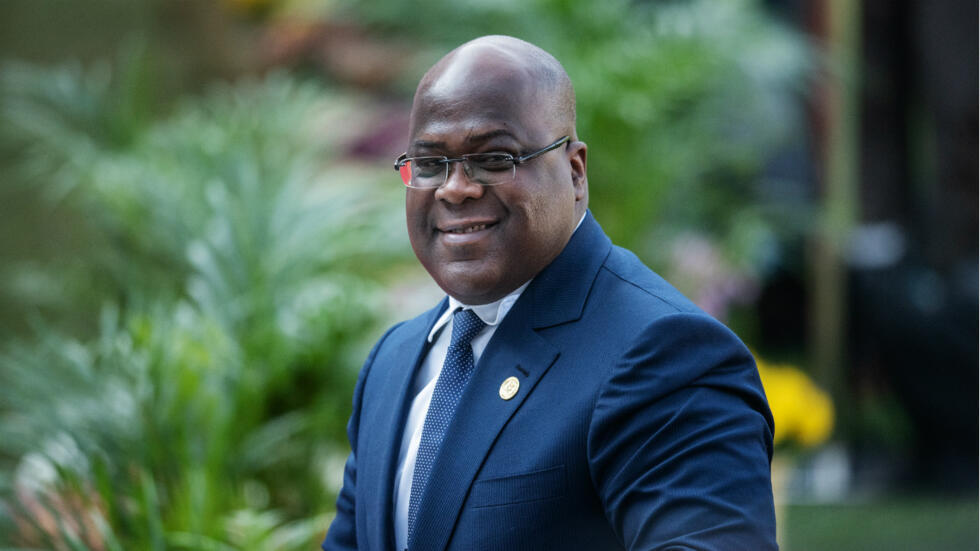
Felix Tshisekedi’s second term as President of the Democratic Republic of Congo (DRC) presents both opportunities and challenges. His victory in the 2018 election, followed by a disputed 2023 election, has raised questions about the future of the DRC’s political stability and economic development.
The swearing-in of Felix Tshisekedi for a second term as President of the Democratic Republic of Congo after a disputed election has sparked controversy, much like the recent accusations against former UK Prime Minister Tony Blair. Blair has denied any involvement in a scheme to resettle Gazans, as reported in this article , raising questions about his potential role in international affairs.
The situation in the DRC highlights the complexities of democratic processes in a region grappling with instability and political turmoil.
Economic Challenges and Opportunities
Tshisekedi’s economic agenda is focused on diversifying the DRC’s economy away from its dependence on natural resources, particularly minerals. The DRC possesses vast reserves of copper, cobalt, and diamonds, but its economic growth has been hampered by corruption, lack of infrastructure, and political instability.
Tshisekedi’s government has implemented several economic reforms, including the establishment of a new mining code and the promotion of private sector investment. However, these efforts have been met with mixed results.
- Infrastructure Development:The DRC’s infrastructure is severely underdeveloped, hindering economic growth. Tshisekedi’s government has prioritized infrastructure projects, including the construction of roads, railways, and hydroelectric dams. These projects are crucial for connecting remote areas to markets and facilitating economic activity. However, the DRC faces significant funding challenges in realizing these ambitious plans.
- Diversification of the Economy:The DRC’s economy is heavily reliant on natural resource extraction. Tshisekedi’s government has set out to diversify the economy by promoting agriculture, manufacturing, and tourism. The DRC possesses vast agricultural potential, but lack of investment and infrastructure have hindered development.
Developing the manufacturing sector will require significant investment in skills development and technology. Tourism has the potential to generate revenue and create jobs, but the DRC’s security situation remains a major obstacle.
- Corruption:Corruption is endemic in the DRC and undermines economic growth and development. Tshisekedi’s government has pledged to combat corruption, but progress has been slow. The DRC’s weak institutions and lack of transparency make it difficult to effectively tackle corruption.
Security Challenges and the Fight Against Armed Groups
The DRC faces a complex security situation with multiple armed groups operating in the eastern provinces. These groups engage in violence, human rights abuses, and the exploitation of natural resources. Tshisekedi’s government has launched military operations against these groups, but the conflict remains unresolved.
The presence of armed groups has displaced millions of people and created a humanitarian crisis.
- M23 Rebellion:The M23 rebel group, which has been active in North Kivu since 2012, has posed a significant challenge to the DRC government. The M23 has accused the DRC government of failing to implement a peace agreement signed in 2013.
The group’s resurgence in 2022 has led to renewed fighting and humanitarian concerns.
- Foreign Intervention:The DRC’s security situation is complicated by the involvement of foreign actors, including Rwanda, Uganda, and Burundi. These countries have been accused of supporting armed groups in the DRC. Tshisekedi’s government has sought to address these concerns through diplomatic channels.
- Humanitarian Crisis:The conflict in eastern DRC has created a humanitarian crisis, with millions of people displaced and in need of assistance. The DRC government has struggled to provide adequate humanitarian assistance, and the situation has been exacerbated by a lack of funding and access to conflict zones.
Political Stability and Reconciliation, Dr congo president to be sworn in for a second term after disputed election felix tshisekedi
Tshisekedi’s second term presents an opportunity to address the DRC’s long-standing political instability. The DRC has a history of violent conflict and political repression. Tshisekedi has pledged to promote political dialogue and reconciliation. However, the DRC’s political landscape remains deeply divided, and Tshisekedi’s efforts to build consensus have been met with challenges.
- Political Opposition:Tshisekedi’s government has faced opposition from a number of political parties, including those led by former President Joseph Kabila. These parties have accused Tshisekedi of consolidating power and suppressing dissent. The opposition has called for electoral reforms and greater transparency in government.
- Constitutional Reform:Tshisekedi has proposed constitutional reforms, including the possibility of changing the presidential term limits. These reforms have been met with mixed reactions, with some supporting the reforms and others arguing that they are an attempt to extend Tshisekedi’s stay in power.
- Regional Cooperation:Tshisekedi’s government has sought to strengthen regional cooperation in order to address the security challenges facing the DRC. The DRC has been working with its neighbors to combat armed groups and promote peace and stability. However, the DRC’s relationships with some of its neighbors remain strained.
The Political Landscape in the DRC
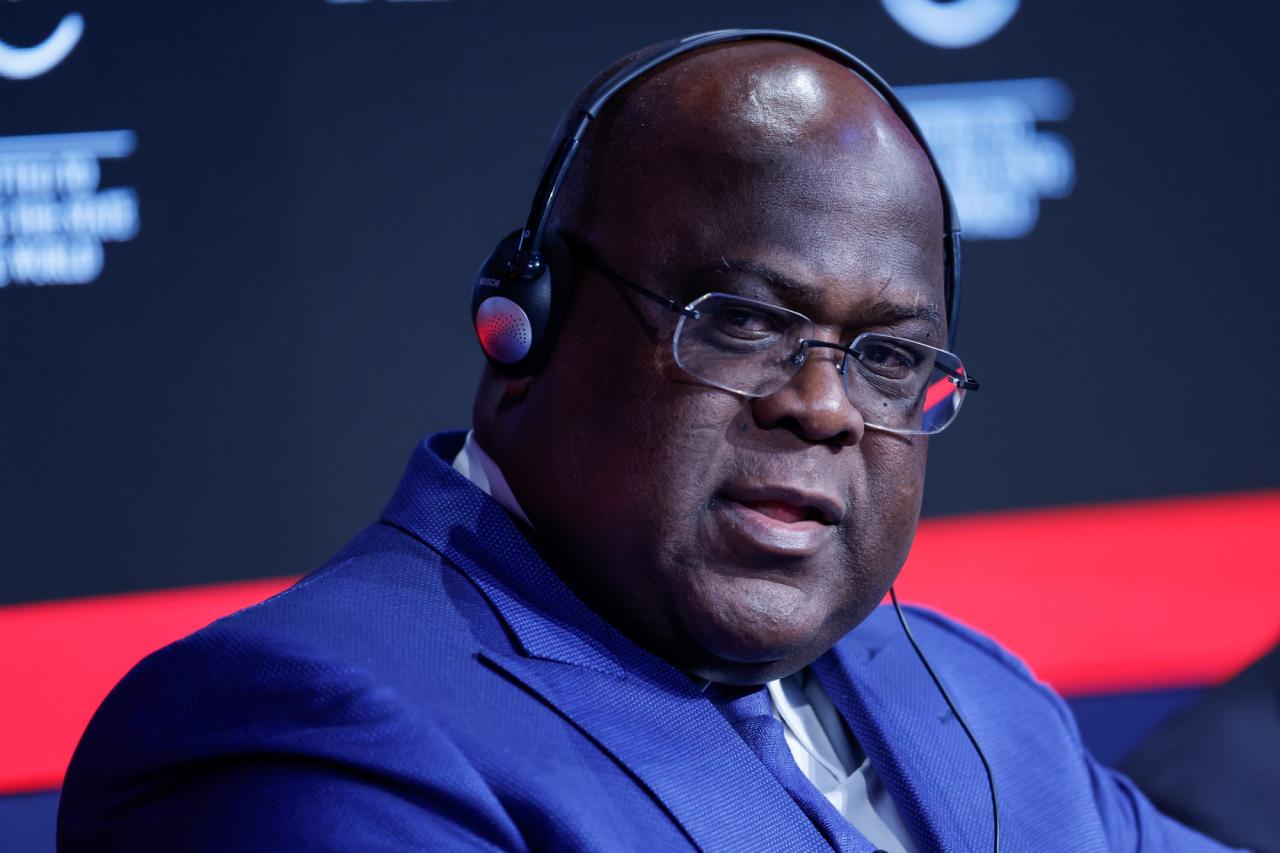
The Democratic Republic of Congo (DRC) boasts a complex political landscape, shaped by its turbulent history, vast resources, and diverse population. The recent election of Felix Tshisekedi to a second term has further amplified the existing political tensions and dynamics.
Understanding the key players and their positions on the election and Tshisekedi’s second term is crucial for comprehending the current political climate.
The Main Political Actors and their Positions
The DRC’s political landscape is characterized by a multitude of actors with varying degrees of influence and power. These include:
- Felix Tshisekedi, the incumbent president, is the leader of the Union for Democracy and Social Progress (UDPS) party. He won the 2018 election and secured a second term in the 2023 election, which was widely criticized for irregularities and voter suppression.
The swearing-in ceremony for Felix Tshisekedi’s second term as President of the Democratic Republic of Congo is sure to be a tense affair, given the disputed nature of the election. The international community is watching closely, and many are concerned about the potential for further instability.
Meanwhile, tensions are also rising between Pakistan and Iran, as Pakistan has launched strikes against terrorist hideouts in Iran following attacks on Iranian soil. Read more about the escalating conflict between Pakistan and Iran here. It remains to be seen how the political situation in the DRC will play out, but the events in the region are a stark reminder of the fragility of peace and security in the region.
Tshisekedi’s supporters view him as a symbol of change and a leader who can bring stability to the country. However, his critics argue that his presidency has been marked by corruption, political instability, and a failure to address the country’s deep-seated problems.
- Joseph Kabila, the former president, remains a powerful figure in DRC politics despite his departure from office in 2019. He is the leader of the People’s Party for Reconstruction and Democracy (PPRD) and continues to exert significant influence through his allies in the government and the military.
Kabila’s supporters see him as a strong leader who brought peace and stability to the DRC after years of conflict. However, his critics accuse him of human rights abuses, corruption, and manipulating the electoral process to maintain his grip on power.
- Moïse Katumbi, a prominent businessman and former governor of Katanga, is a leading opposition figure. He is the leader of the Together for Change (Ensemble) coalition and has been a vocal critic of both Tshisekedi and Kabila. Katumbi’s supporters view him as a potential alternative to the current political establishment and a leader who can bring economic prosperity to the DRC.
However, he has been accused of corruption and has faced legal challenges that have hampered his political ambitions.
- Martin Fayulu, the leader of the Engagement for Citizenship and Development (ECIDé) party, is another prominent opposition figure. He was the runner-up in the 2018 election and has been a vocal critic of Tshisekedi’s presidency. Fayulu’s supporters see him as a champion of democracy and a leader who can address the DRC’s social and economic problems.
However, he has been criticized for his lack of political experience and his reliance on populist rhetoric.
The Relationship Between the Government and Opposition Parties
The relationship between the government and opposition parties in the DRC is characterized by deep mistrust and a lack of dialogue. Opposition parties have consistently accused the government of rigging elections, suppressing dissent, and violating human rights. The government, in turn, has accused opposition parties of being destabilizing forces and of seeking to undermine the country’s stability.
The swearing-in of Felix Tshisekedi for a second term as President of the Democratic Republic of Congo comes amidst ongoing controversy surrounding the election. While the focus remains on the political landscape of Congo, it’s interesting to see how regional dynamics are also shaping the continent.
For instance, Ethiopia and Somaliland recently agreed on a deal for port access, as reported in this article. This agreement could have significant implications for trade and development in the Horn of Africa, potentially impacting the broader political climate in the region, including Congo’s own relationships with its neighbors.
This adversarial relationship has made it difficult to build consensus on key issues and has contributed to political instability.
The Role of Civil Society
Civil society plays a crucial role in the DRC’s political landscape. Civil society organizations (CSOs) are active in advocating for human rights, promoting democracy, and holding the government accountable. They have been at the forefront of efforts to monitor elections, expose corruption, and provide essential services to vulnerable communities.
However, CSOs face significant challenges, including threats of violence, harassment, and restrictions on their activities.
The Impact on the DRC’s Future
Felix Tshisekedi’s second term holds significant implications for the Democratic Republic of Congo’s (DRC) economic development, social progress, and the pursuit of peace and stability. The country faces a multitude of challenges, but also opportunities for growth and prosperity.
Economic Development and Social Progress
The DRC’s economic development and social progress are intricately linked to the success of Tshisekedi’s second term. The country possesses vast natural resources, but its potential remains largely untapped due to decades of conflict, corruption, and weak governance. Tshisekedi’s government has pledged to prioritize economic diversification, infrastructure development, and human capital investment.
- Economic Diversification:The DRC’s economy is heavily reliant on mining, particularly copper and cobalt. Diversifying the economy into sectors like agriculture, manufacturing, and tourism is crucial for long-term growth and sustainability. This requires attracting foreign investment, promoting domestic entrepreneurship, and improving the business environment.
- Infrastructure Development:The DRC suffers from inadequate infrastructure, including roads, railways, and electricity. Investments in infrastructure are essential to facilitate trade, attract investment, and improve the lives of ordinary citizens. The government has initiated several infrastructure projects, but more needs to be done to ensure their successful completion and long-term sustainability.
- Human Capital Investment:Investing in education and healthcare is crucial for the DRC’s development. The country has a young and growing population, but many lack access to quality education and healthcare services. Addressing these challenges will require significant investments in education and healthcare infrastructure, as well as the training of qualified teachers and healthcare professionals.
Last Word
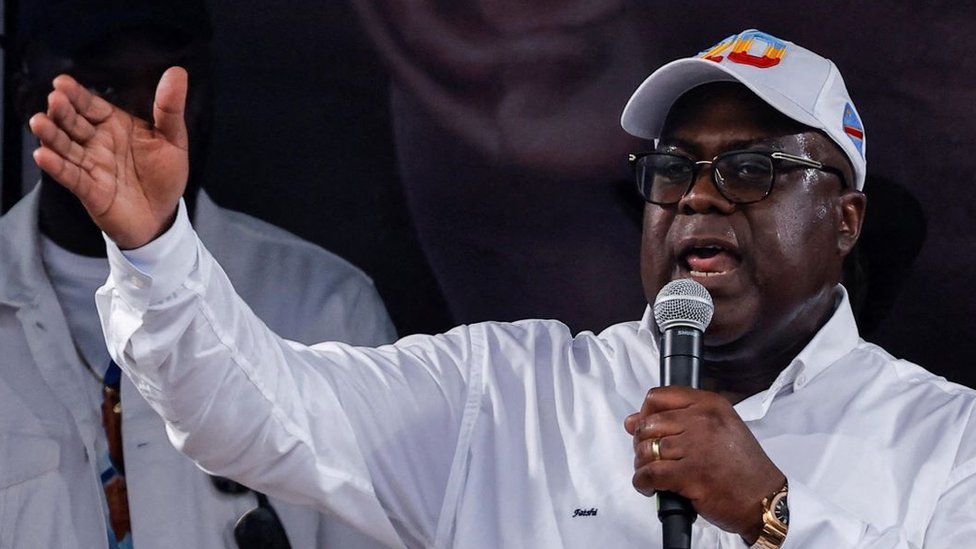
The DRC stands at a crossroads, and the outcome of Tshisekedi’s second term will have a profound impact on the country’s trajectory. The political landscape is complex, with various actors vying for influence and power. The relationship between the government and opposition parties will be critical in shaping the political environment.
Civil society organizations will play a vital role in holding the government accountable and advocating for the rights and interests of the people. The DRC’s future hinges on the ability of its leaders to navigate these challenges and create a more peaceful, prosperous, and just society.

